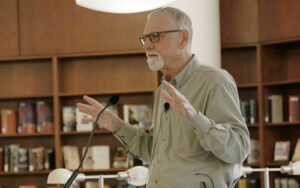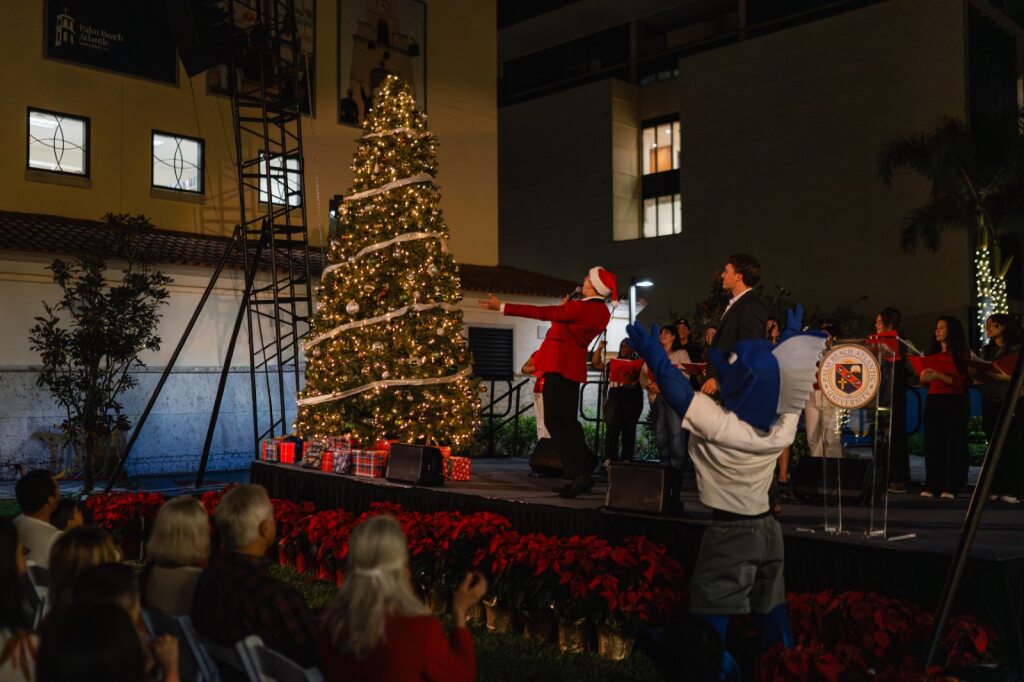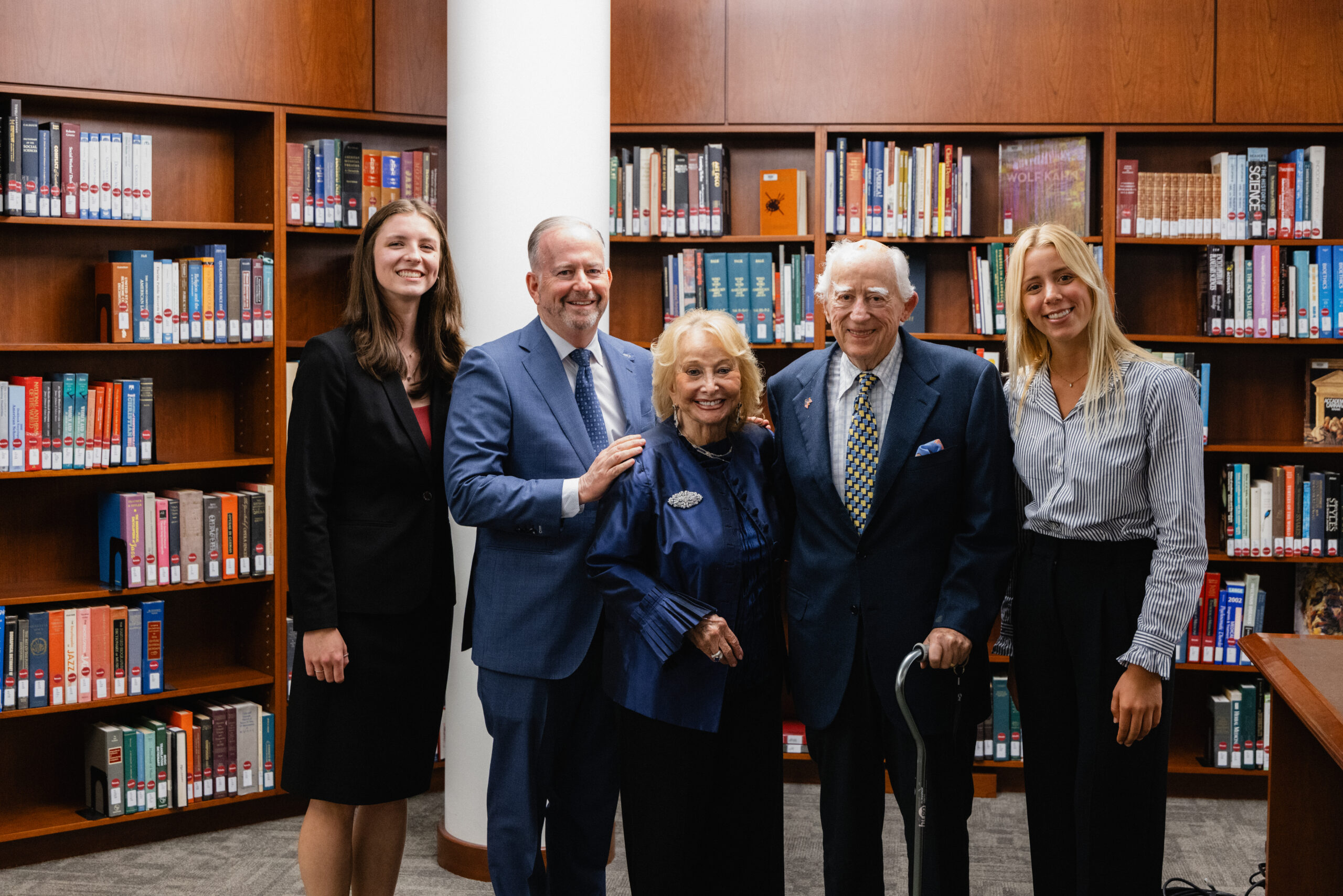
“The gift of human communication, this life-changing power of words, really allows us to create, to maintain and also to destroy all of our relationships,” said communication scholar Dr. Quentin Schultze. “If you take away one thing from here today, take that away.”
Schultze, award-winning author, speaker and professor emeritus of communication at Calvin University, spoke Jan. 19 in the Lassiter Rotunda of the Warren Library on the topic “Communicating in an Age of Fear, Conflict and Division.” He was a guest of Wordship, the university-wide emphasis to use our words wisely to edify others, including those with whom we disagree.
To better use the power of words, Schultze suggested two keys: gratitude and listening. Before he gets out of bed every morning, he thanks God for the gift of life. “Gratitude is a kind of virtue that has amazing power,” he said. “It eats negativity away. Just chews it up, spits it out. Fill your hearts with gratitude. It’s the ultimate booster shot.”
Listening, Schultze said, “is probably the most significant act of hospitality for human beings.” But he called for listening “to understand others, not to convince or persuade others.”
Such communication skills never came easy for Schultze, who grew up with an alcoholic father and a paranoid schizophrenic mother. But one day when he was heading out to visit his mother, a thought came to him: “Ask her what it was like growing up in the Great Depression.”
Responding to that question, his mother opened up and shared “a huge section of the reality of her life,” he said. Together, Schultze and his mother wept. “For the first time in my life,” he said, “I was starting to empathize with my own mother. I believe God gave me that question to ask her. I can’t explain it any other way.”
In “this muck all around us: brokenness, conflict, division,” Schultze said, “God is there in the midst of it.”
Schultze is a longtime friend of Dr. Stephanie Bennett, director of Wordship and professor of communication and media ecology. She arranged his PBA visit, which also included speaking in chapel, to new faculty, and in several classes.
“What a treat to have this fine scholar with us, pouring into the PBA community,” Bennett said. “His open, honest and accessible style of communication touched many. The students loved him.”
In his remarks in the Lassiter Rotunda of the Warren Library, Schultze thanked President Dr. Debra A. Schwinn for her support in developing the Wordship program. “It’s visionary,” he said. “And it’s also the right time to talk about language and faith in the world we inhabit right now.”

